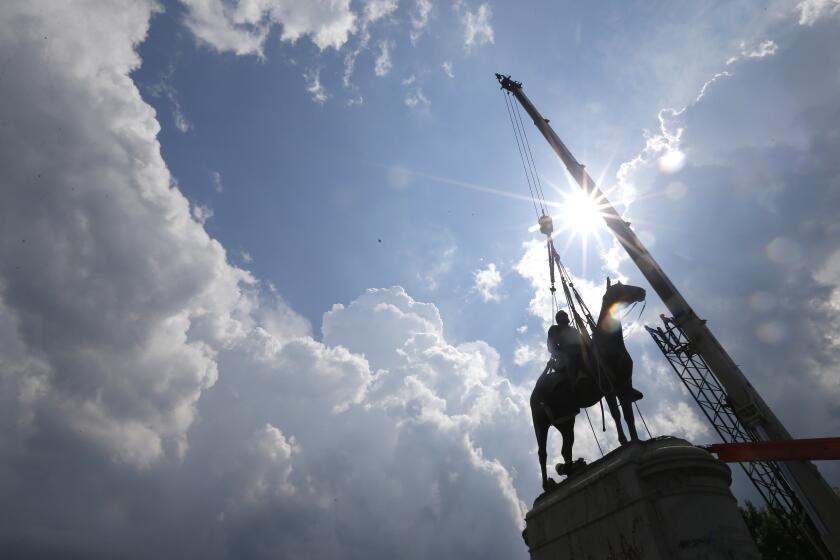Resist the Lure of a Draft
With the military stretched to its limits in Iraq, Afghanistan and elsewhere, Sen. Chuck Hagel (R-Neb.), a member of the Foreign Relations Committee, asked this blunt question Wednesday on NBC television: “Should we continue to burden the middle class, who represents most all of our soldiers, and the lower-middle class?” Sen. Joseph R. Biden Jr. (D-Del.), also a committee member, is raising similar questions. Neither Biden nor Hagel is advocating a draft, and strong public resistance is an effective preventive. Still, the debate they have opened is urgent and timely.
The Bush administration has attempted to avoid such discussion in part by waging the war with insufficient forces for the invasion and especially the occupation, despite warnings before Congress from Army Gen. Eric K. Shinseki in February 2003. It has also fudged the costs of the war and declined to ask financial sacrifices of Americans at home. But a discussion of the burden on the troops and the Pentagon’s increased reliance on private security is overdue.
Having mercenaries battle militants and protect the occupation authority’s headquarters in Baghdad may be convenient, but it may also embolden militants by signaling that the U.S. can’t do the job itself. In addition, it’s corrosive for real soldiers to see private guards hauling down salaries many times their own. It tempts them not to reenlist and instead become soldiers of fortune with the same or less risk.
Before the U.S. goes further down this path, Congress should weigh future military needs, both in numbers and cost. The strain of war without a steady stream of new troops is already becoming evident, and there has been no honest discussion of where that leads. Secretary of Defense Donald H. Rumsfeld entered office declaring that he was going to downsize the military. Now he and the president need to weigh increasing its size.
A draft is not the answer.
The Nixon administration killed it in 1973, and the all-volunteer force that has emerged is unsurpassed in the world for its professionalism and effectiveness. A program of national, purely civilian service, however, is something that lawmakers should separately debate: Democratic presidential candidate John F. Kerry has already called for engaging 200,000 more Americans in national service for civilian tasks in return for college aid. Such a program might enlarge the narrow slice of the population engaging in public service.
The larger question is how the military can meet the unexpected demands of the war on terrorism. The longer the Iraq mess drags on, the greater the strain will be on the military and soldiers’ families. As lawmakers’ threatening sounds about extreme solutions like a draft indicate, the administration can no longer evade the realities and costs of occupying Iraq.
Congress is raising questions for which there may be no good answers, but they offer a foundation for public debate.
More to Read
Get the L.A. Times Politics newsletter
Deeply reported insights into legislation, politics and policy from Sacramento, Washington and beyond. In your inbox three times per week.
You may occasionally receive promotional content from the Los Angeles Times.






